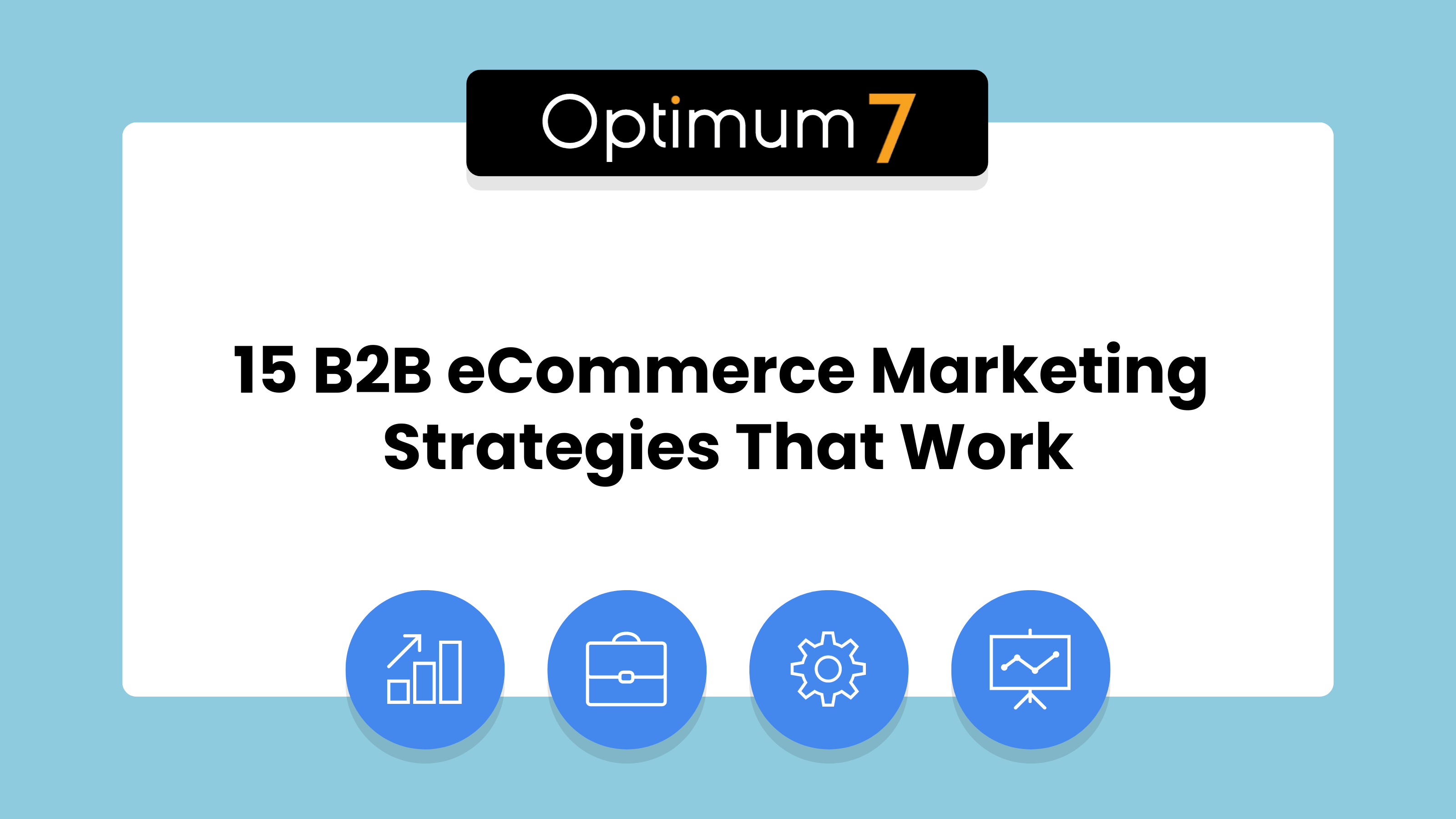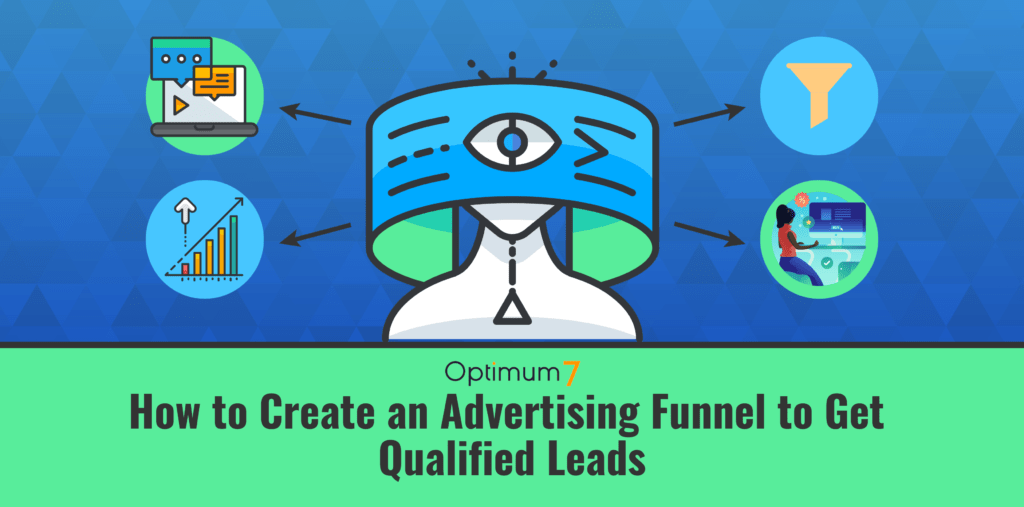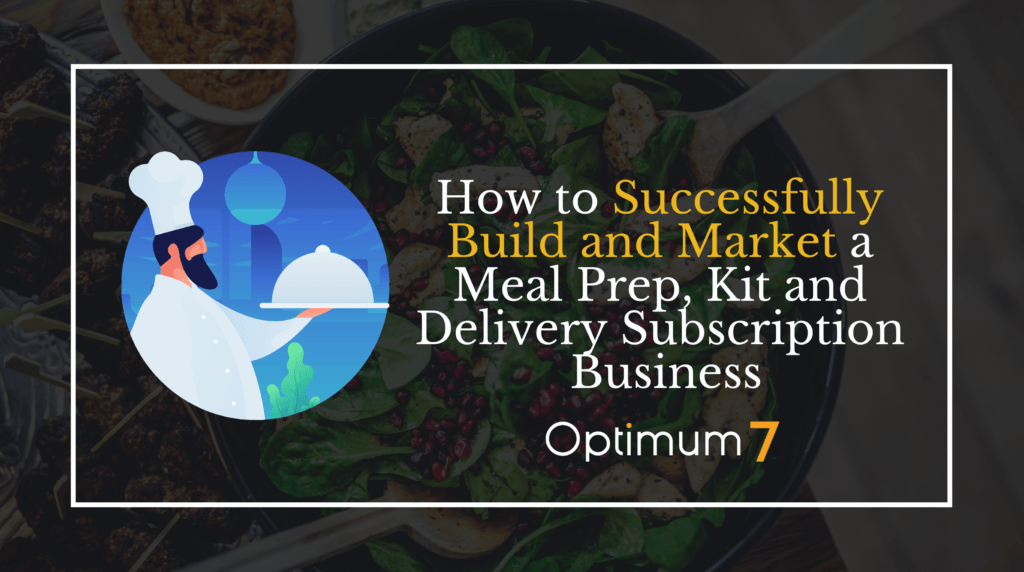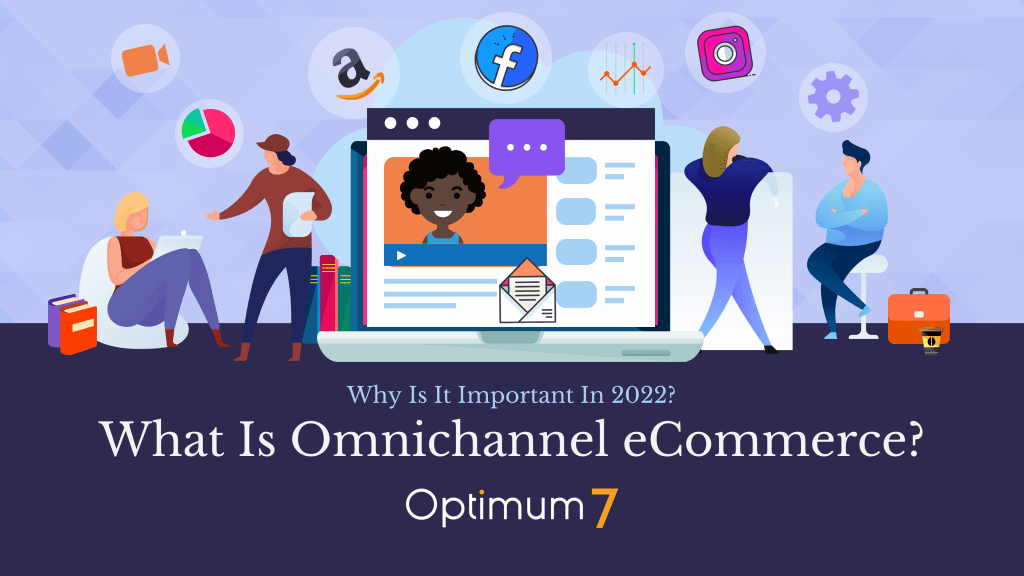The B2B market has been undergoing digital transformation, and there is no longer room for boring marketing.
The most successful firms have embraced this change to stay ahead of their competition. As they continue absorbing new strategies that are necessary within this ever-changing space.
eCommerce marketing strategies of B2B firms have changed over the years. Some still rely on outdated techniques, while others are struggling to keep up with all these changes to grow their business online. – What should you do?
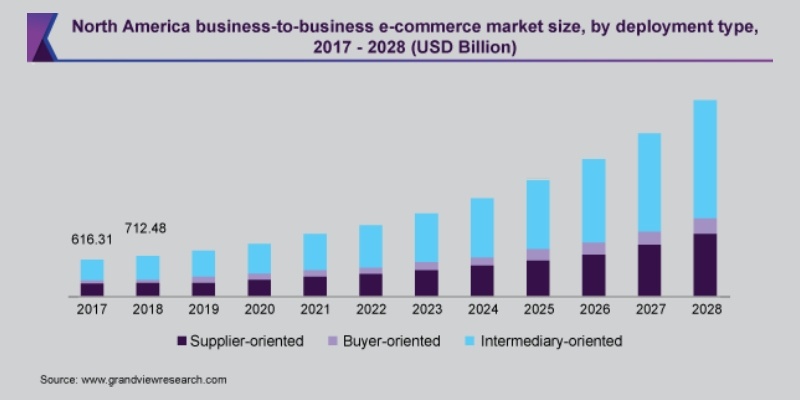
B2B marketers need to know their customers and stay on top of trends to make the customer experience as good for them as possible.
There’s a lot going around that can help with this! So we’ll break down some tried-and-true strategies here!
What Does B2B Marketing Mean?
B2B marketing means any strategy and effort that targets a business or organization.
Any company selling products to other companies (vs individual consumers) applies B2B strategies. It means that they gear towards individuals making purchases on behalf of their businesses with logic. For example, financial incentives and positive ROI(return on investment).
B2B Marketing Strategy
B2B (Business-to-business) eCommerce marketing strategies are the most effective way of reaching your customers.
B2B marketers are able, not only do they reach out and touch their potential clients directly but also to provide them with services in order for these companies to be successful such as logistics or accounting which can benefit both parties involved!
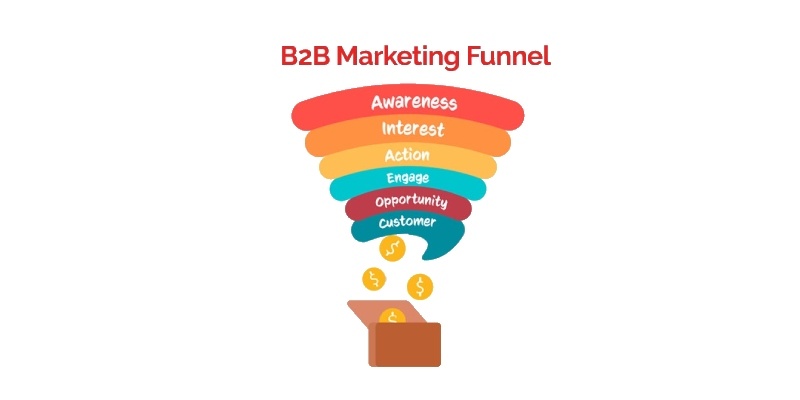
The ultimate goal of B2B eCommerce marketing strategies is to generate leads for your company.
The first step in creating this strategy should be targeting potential clients and buyers through messages. But many firms also focus on generating interest from those who work within the industry or organizations. This will provide them with new business partners.
The B2B eCommerce marketing landscape has expanded. The buyers are now doing a Google search to find out information about you before buying process.
Existing Customers
Business customers prefer searching on their own rather than reading from direct personal references. That’s why it is important for businesses in this space to provide them with credible content. It will turn consumers into customers or clients through an understanding of your product. Credible content also provides accurate data on where they can buy said products.
15 B2B eCommerce Marketing Strategies That Work
The right B2B eCommerce marketing strategy will depend on the needs and preferences of your customers.
For example, some may prefer a one-on-one approach while others might be more inclined toward social media posts or email newsletters from your company’s website.
By using multiple channels it is possible that they can find what works best for them. With multiple channels, customers do not feel left out!
1-) Content Marketing and SEO (Search Engine Optimization)
B2B eCommerce buyers have a much longer and more drawn-out process when completing their purchase than do consumers.
They spend time researching your business, comparing prices with others in the industry. They look at what you offer before finally making an order for whatever product it is they are interested in buying from you. – Often takes several months to complete this entire journey!
The process of B2B eCommerce SEO can be an undertaking that involves numerous decision-makers.
Each searcher will do their research based on the context and knowledge they have for any given project or situation. This means it’s important to account for every single possibility when designing content. So all your potential customers are accounted for in one way or another!
B2B eCommerce marketers need to be aware that even if one person is doing research, there are likely other people who will do their own searches. It also includes different keywords depending on the context.
This means you can’t just put any old words in your content without thinking about how they’ll all fit together. – This brings us back full circle!
Content marketing strategies are the spark of a successful business. It’s vital to create content, which fits your strategy and interests. The content should target prospective clients or customers with relevant product information. It will generate leads for you to drive traffic back on site!
2-) Social Media Marketing Strategy
With 3.2 billion social media users, it’s no wonder that 42% of the world population uses this medium for business today!
We are all interconnected and know each other better than ever before through platforms like Facebook or Instagram. Social media connects us with friends from around the globe in ways we never thought possible. – Even if they don’t speak your native tongue.
The internet has given everyone access to information at any time. – No matter where you live; what language is spoken easiest by family members – So why not take advantage?
The power lies within being able to provide solutions and offer services tailored to one person’s needs. It doesn’t require field service representatives to come out.
Social channels are not only the places for constant posts but also a way to build your brand’s awareness. and it provides affinity by sharing content that provides value.
So with social media being so popular nowadays, which sites will provide you the most bang for your buck? Of course, there are some big names such as Facebook, Twitter, LinkedIn, and Youtube.
LinkedIn is the ultimate place to build your professional network and connect with other professionals.
With over 600 million users, it’s not surprising that LinkedIn has become one of today’s most popular social media sites. The platform is one of the best solutions for business owners to create their own profiles. It can help you make new connections in a matter of minutes. – All while remaining respectful towards others on this powerful platform!
Facebook has more than 2 billion active users every day. It’s the most popular social platform with 1.59 billion daily active users on average!
You can use Facebook ads to reach your target audience. You can create campaigns in a way that they’ll find engaging; by attracting them from other sites as well. It means you have an increased chance of driving leads or conversions too. – All without actually having any presence on their website.
Youtube
Youtube’s reign as the king of the video era is not overstated. In 2021, it will account for 79% of global internet traffic and can be used to produce videos. It follows your channel’s direction while attracting a large number of users in one network.
You could also link them with other sites through embedding links on landing pages or blog posts as well!
Twitter is a powerful tool for networking with other businesses and potential clients.
You can use the platform to create visibility for your brand. Also, you can use it to interact with followers by keeping an eye out in search engines. It will help you reach more people who might become your new customers.
3-) eCommerce Email Marketing
Email marketing strategies are still one of the most popular ways to distribute content and engage with consumers. But, it’s not without its downsides.
eCommerce email marketing strategies may be worth continuing if you can find a way for your emails to stand out from other brands. Because it is a tedious marketplace where there are so many options available. It means that instead of being boring or uninteresting (which nobody likes) people need something different. – Creativity will do wonders here!
Email marketing is a very effective way to build relationships and increase sales processes and sales.
Some common types of emails include hyper-relevant email drips and product messages (to remind buyers of their latest sale). Also, there are order confirmation mailings when someone makes an online purchase from your store. These are just some examples!
To ensure you’re getting the most out of this form campaign make sure that all senders have access to SMTP. So they can craft appropriate campaigns for different audiences based on what we know about them already. – Including which boxes might best fit into yours.
4-) Affiliate Marketing
The power of affiliate marketing campaigns is undeniable. People are four times more likely to buy a product when recommended by their friends. Also, over 30% of software sold every year on the partners’ channels comes from referrals alone!
Consider joining an affiliate program for your website. So you can take advantage as well. You don’t need to wait any longer! Because this could be the opportunity that takes things up another notch in terms of conversions, and revenue streams. – Whatever is missing from current strategies.
5-) Live Chat Marketing
The answer to the question of whether B2B eCommerce live chat is as effective at generating leads, and does it work better than automation? Yes.
The difference between an automated bot versus what we have here with your sales team on hand 24/7 means you can engage customers like they are right in front of you!
You won’t need them to go through research before coming into contact. – Just talk about whatever concerns or problems arise while trying to find solutions together.
6-) Account-Based Marketing
Account-based marketing has been on a steady incline in recent years. That’s why customers increasingly prefer personalization.
This kind of strategy works for B2B eCommerce online stores targeting high-value clients. These strategies have the potential to convert and make an impactful return on investment (ROI).
In particular, you can create personalized user experiences. It allows connections between accounts with sales activity in real-time. All this gives your own business some advantages over its competitors!
Account-based marketing is a great way to cater your business to potential clients. Because it will make them feel special and their needs are deeply understood.
The one critical step in growing the B2B eCommerce industry? Creating personalized user experiences, like no other!
7-) Visual Content Marketing
Visual content does a better job of promoting your brand awareness and recall.
When we consume visual information, our brains are much more likely than those who read text-based articles can remember what they saw!
This means that adding beautiful images or videos on every page will increase how memorable you want people to find yourself in relation to everything else out there. It could help them choose you as their favorite provider among all others!
Don’t use too many visual materials! It can make the target audience feel overwhelmed or distracted by an overwhelming amount of images.
It’s important for you not only to have quality photos on your site, but also they need to be consistent throughout all channels. – From social media posts as well as eCommerce pages!
Try using free stock providers like DepositPhotos if needed. Because there’s no better way than them when it comes down to choosing which images will best suit what we’re looking at here.
8-) Multi-Channel Marketing
B2B eCommerce buyers are searching for what they’re concerned about via multiple discovery channels.
Make sure your source of information or products also appear in multi-channels. So that you can reach out to these searchers as much from whatever channel is most convenient at the time. It could be a search engine on their phone (keyword), a social media feed with friends who have similar interests.
It’s time to take social media networks seriously. Social media networks are in charge of the buyers’ shopping journey. You should not ignore them when doing marketing for your business or brand!
B2B eCommerce companies have seen a huge rise over recent years. Because they’re always on these digital platforms. – Facebook, Instagram, Twitter, and LinkedIn. – So that people can find information about products fast from their friends who might know someone using one of those services already.
These days everyone wants immediate gratification; it just doesn’t work like this anymore.
9-) Professional and Functional Website
A website is an essential tool for any business in the modern era. If you’re targeting leads from your B2B eCommerce content, it’s important to have a functional B2B eCommerce store and professional-looking.
The landing page is crucial on these sites. Because they help visitors find out about whatever product or service. Landing pages help to increase visibility quickest via search engine optimization (SEO).
A good design can also create organic traffic. It converts into high-quality customers; so make sure that all aspects match!
With the rise in technology, buyers have more options for how they can purchase a product.
B2B eCommerce sales cycles are longer and involve multiple interactions with connected devices. It means that it’s important to design your website so you inform customers about what products or services are offered. Also, you need to captivate them through persuasive messaging techniques.
10-) Influencer Marketing
Influencers are people with large followings on social media, who partner up to promote brands.
They can be a channel of influence in their own right or just someone sharing what they think would interest other users – it all depends!
The power behind Influencer advertising lies not only in popularity but also in trustworthiness. Because consumers know exactly where each person stands on his/her own personal brand versus any collaborations he or may have had previously.
Influencer marketing is a great alternative to traditional advertising. Because it can provide the benefits of paid media without any drawbacks.
Influencers are trusted by consumers, and their recommendations carry weight in an increasingly crowded market space where there’s only so much one person could know about all products available on a shelf or online page!
11-) Brand Awareness
It is very difficult for companies to compete with the many similar goods and services on offer in today’s market.
One way of tackling this problem would be by creating a unique brand identity. It differentiates you from your competitors’ brands – after all, customers do need guidance when it comes down to choosing what they want!
A brand’s identity is not just a logo, color, or slogan. It can be built through content marketing efforts that create values like uniqueness and consistency in addition to responsibilities for your eCommerce business’ reputation.
A strong brand awareness effort will have people remembering you long after they’ve forgotten about all their other brands because of how original it was!
12-) Marketing Automation
Marketing automation can make your work life easier and more optimized by gathering all online marketing channels together.
The first thing to notice is choosing suitable software for website management, email campaigns (including automated action emails), social media platforms like Facebook or Twitter, etc., along with Google Analytics data that are automatically updated daily onto an individual’s dashboard so they know what actions need to be taken next as well as when these changes will occur in real-time!
13-) PPC Advertising – Marketing Strategy
PPC ads (Paid ads) are an easy and affordable way to market your company.
They can be especially effective if you use the SEO option, which ensures that people who perform searches on Google will see relevant adverts from advertisers like yours when they’re looking for something new or popular online!
PPC ads are a great way to find what you’re looking for and even more!
If PPC advertising shows up in your search result pages, then it seems like this is an option worth considering.
Search engine marketing and PPC ads are similar in many ways because both depend on the power of keywords.
For instance, you need to do keyword searches and then craft your ad based on those words for the best results!
The cost will vary depending on what people type into Google or how much they spend with an advertising provider respectively; however, it’s important not just take their word that this has been done correctly since any mistakes could lower conversion rates significantly (which means fewer customers).
14-) Big Data Marketing
Marketing has never been more data-driven.
In today’s world, you need to collect and analyze an immense amount of information about your customers in order for them to be successful—without this necessary step, there can’t really be any understanding of what they want or how best to tailor their product accordingly.
You can now create a map of your marketing strategy and the people who will be interested in it.
You’ll know exactly how to reach out with targeted messages, which makes conversations more personal for both parties!
The days of simply relying on intuition are over, as data means and tools can help you optimize your marketing campaigns.
By collecting customer feedback in an efficient system to analyze it all together, businesses will be able to create stronger relationships with their customers while also growing sales leads at a faster rate than ever before!
15-) Niche-Driven Marketing
Niche-driven marketing is a powerful tool for businesses to focus their efforts.
When done right, it can be an effective way of targeting customers with specific wants and needs. While letting go of those who aren’t interested or willing just yet, but not forgetting about them either!
The niche-driven marketing strategy is a key to winning customer loyalty.
It allows the company to build an intimate relationship with its customers. Also, it offers them various benefits such as increased sales due in part to building close ties. Because they execute their campaign on behalf of these potential consumers!
Conclusion
Marketing is always evolving, and it can be hard to keep up with the latest trends. But if you want your eCommerce business to grow in a sustainable way then don’t Stop!
Keep on top of what’s happening today so that tomorrow isn’t as challenging for us all again
We must constantly evolve or die out! There’ll never be any progress without constant change. – Stay ahead by staying educated
No one knows exactly what will happen next especially when it comes down to B2B eCommerce marketing strategies. It is hard to make predictions.
Marketing is a dynamic process, so it’s important to keep trying new strategies.
One of the best ways you can do this and make your business grow faster than ever before? Start using testimonials as part of an effective B2B marketing campaign!
Contact us for a customized B2B eCommerce Strategy. We can help!
FAQ – 15 B2B eCommerce Marketing Strategies That Work
What are B2B marketing strategies?
B2B marketing is any strategy or content that’s geared towards businesses.
Companies with products and services to sell usually use B2B eCommerce strategies. For example, an eCommerce site might aim its efforts at reaching out instead of through traditional advertisements.
How do you market B2B eCommerce?
The eCommerce industry is evolving, and so are the strategies for success.
Here’s a look at trends in B2B eCommerce. It will help you not only create better products but also engage with your customers more efficiently than ever before:
1) Add product information to make sure shoppers know what they’re getting before making purchases on your site or app;
2) Utilize social media marketing such as Facebook ads (with targeting options based on browser type, Twitter promoted tweets from other businesses themselves about discounts/coupons available while supplies last
3)Promote customer reviews through online word-of-mouth marketing campaigns.
How does eCommerce increase sales in B2B?
The B2B eCommerce sales are the toughest one and it’s tough to stay ahead of your competitors. Utilize these 5 ways that will help you out!
-Utilize trust signifier pages, such as having a phone number or address listed on them. So people know where they can reach when there is an issue with their order
-Add more customer reviews for transparency’s sake; if someone wants something enough then maybe five stars isn’t good enough anymore?
Make sure those packages get opened before shipping off again.
What is B2B eCommerce platform?
Business-to-business eCommerce means online transactions in which both parties involved are businesses.
A software-based solution that facilitates these types of business deals and provides information to increase B2B sales is called a Business 2 Business (B2B) eCommerce Platform. It handles for presenting one’s company well so they can sell more products or services.
What is B2B example?
B2B is short for business-to-business, and it refers to any company that does commerce with other companies.
These transactions can take place between two different firms or individuals in an industry as well – so if you’re trying to find someone who sells their products mainly on behalf of another organization rather than just themselves this would be what’s called a “salesperson” (or more formally known as “representative,” which could include things such at agency representatives).
How do I get a new B2B client?
We all know how difficult it can be to find new clients. At the same time, your small business needs more business customers in order to grow and survive!
Here are some creative ways you could use it:
Launch a new product or service;
Max out potential with CRM (or customer relationship management), by taking advantage of every possible touchpoint for communication between company representatives (i.e., sending email notifications about sales process on products & services)
Give digital marketing one more go through its many phases from social media campaigns targeting those who visit websites regularly -like Facebook–to SEO strategies that help rank keywords within certain phrases so they show up higher than competitors.

